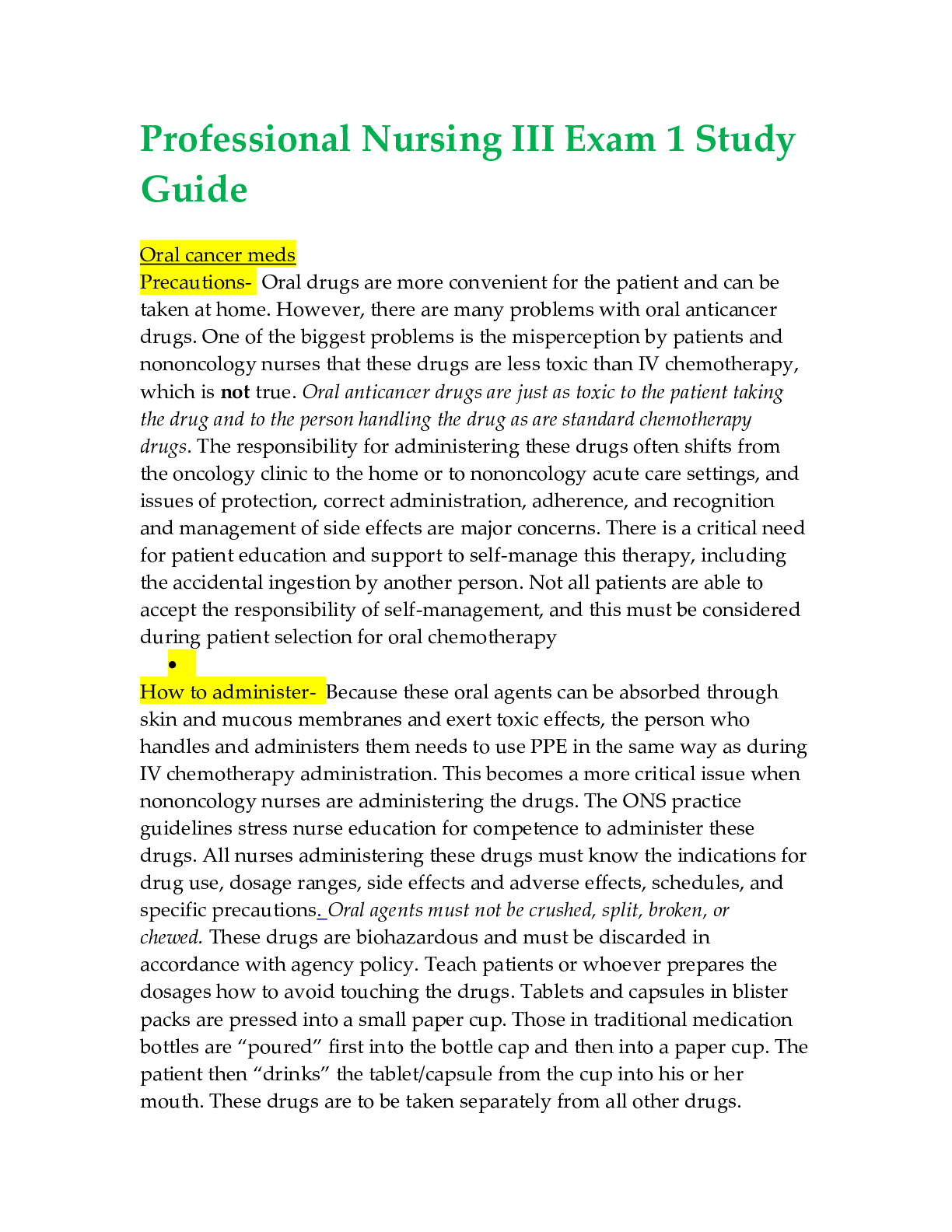*NURSING > STUDY GUIDE > NUR 2063 Essentials of Pathophysiology Exam 1 Study Guide FALL LATEST (All)
NUR 2063 Essentials of Pathophysiology Exam 1 Study Guide FALL LATEST
Document Content and Description Below
NUR 2063 Essentials of Pathophysiology Exam 1 Study Guide 1. What is allostasis? a. Allostasis is a dynamic process that supports and helps the body achieve a steady state. 2. Understand the differenc... e between sequela and complication. a. Sequela is the disease or condition in which is caused by an earlier disease or problem while complication is the act or process worsening of a condition or disease process. 3. What happens during the alarm phase of Hans Selye’s General adaptation Syndrome? a. Called the fight or flight response provides surge of energy and physical alteration to either evade or confront danger. 4. Remember this is the fight or flight stage. What clinical findings would the patient in the fight or flight stage present with? (select all) 5. The four components of Pathophysiology (select all) a. Etiology b. Pathogenesis c. Clinical manifestations d. Treatment 6. Prevention stage of disease- i.e. Primary, Secondary, Tertiary a. Primary: Intervening before health effects occur, through measures such as vaccinations, altering risky behaviors and banning substances known to be associated with a disease or health condition. b. Secondary: Screening to identify diseases in the earliest stages, before the onset of signs and symptoms, through measures such as mammography and regular blood pressure testing. c. Tertiary Prevention: Managing diseases post diagnosis to slow or stop the disease progression through measures such as chemo, rehabilitation, and screenings. 7. What compounds (2) does the body release during stress? a. Epinephrine (adrenaline) b. Norepinephrine (noradrenaline) c. Cortisol d. Dopamine 8. How is fluid between interstitial and intracellular compartments distributed? a. Through a cell membrane and it is mainly controlled by the osmotic pressure 9. How doe extracellular fluid become depleted? a. Loss of total body sodium, causes are vomiting, excessive sweating, diarrhea 10. What is potential and fatal complications of hyponatremia? a. Hyponatremia is caused by factors that produce relative excess of water in proportion to salt in the extracellular fluid. It varies from malaise, anorexia, nausea, vomiting, and headache to confusion, lethargy, seizures and comas. Can cause fatal herniation. [Show More]
Last updated: 1 year ago
Preview 1 out of 7 pages

Buy this document to get the full access instantly
Instant Download Access after purchase
Add to cartInstant download
We Accept:

Reviews( 0 )
$7.00
Document information
Connected school, study & course
About the document
Uploaded On
Dec 03, 2020
Number of pages
7
Written in
Additional information
This document has been written for:
Uploaded
Dec 03, 2020
Downloads
0
Views
46

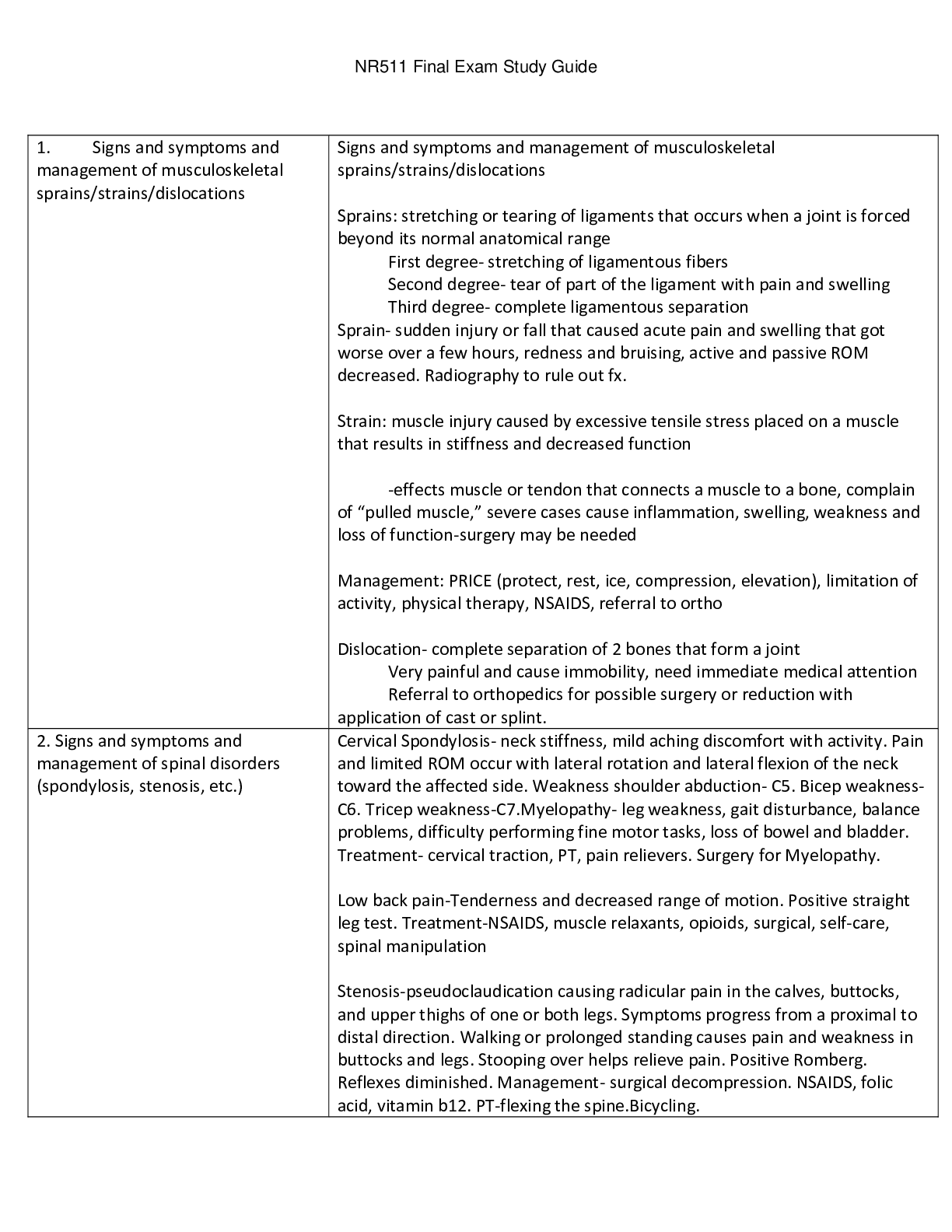
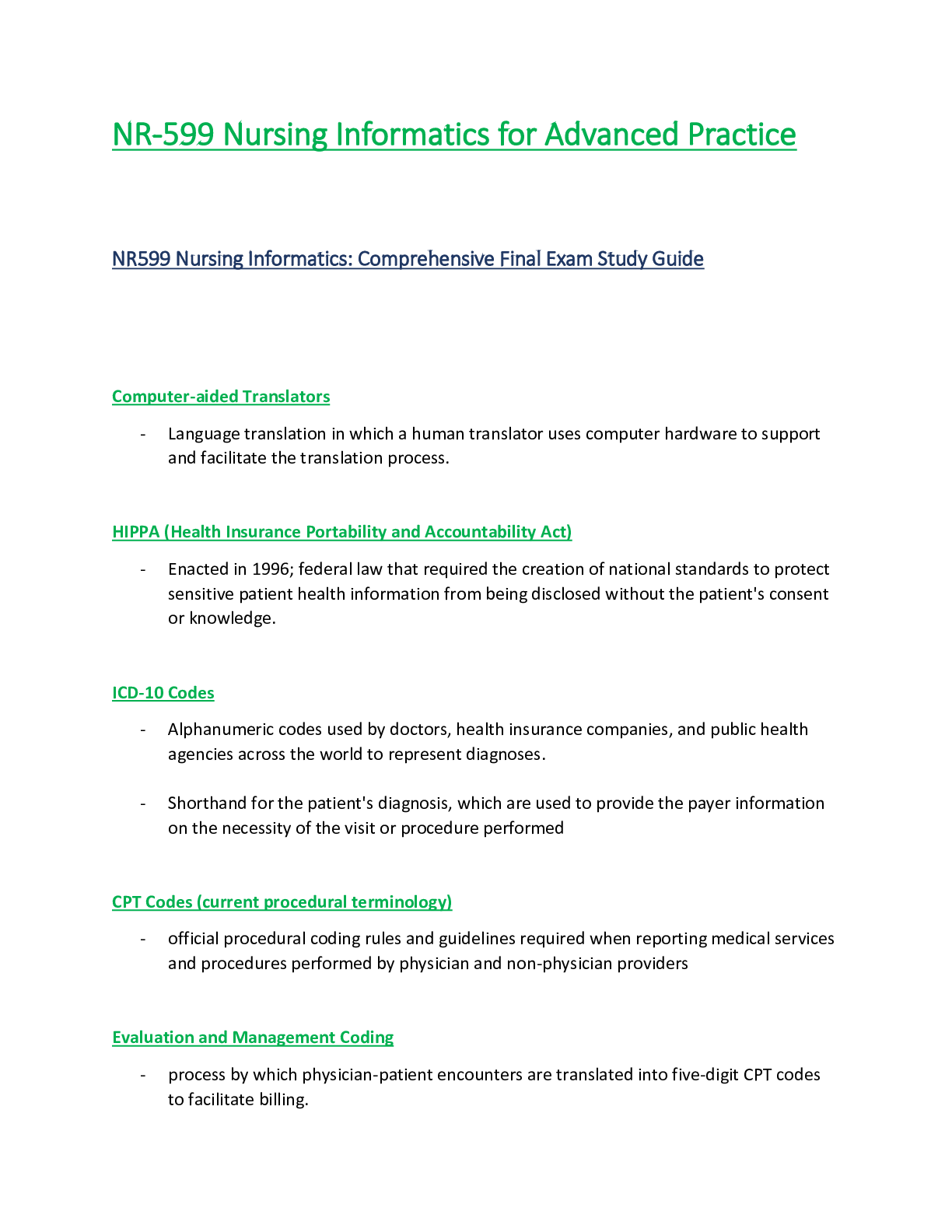
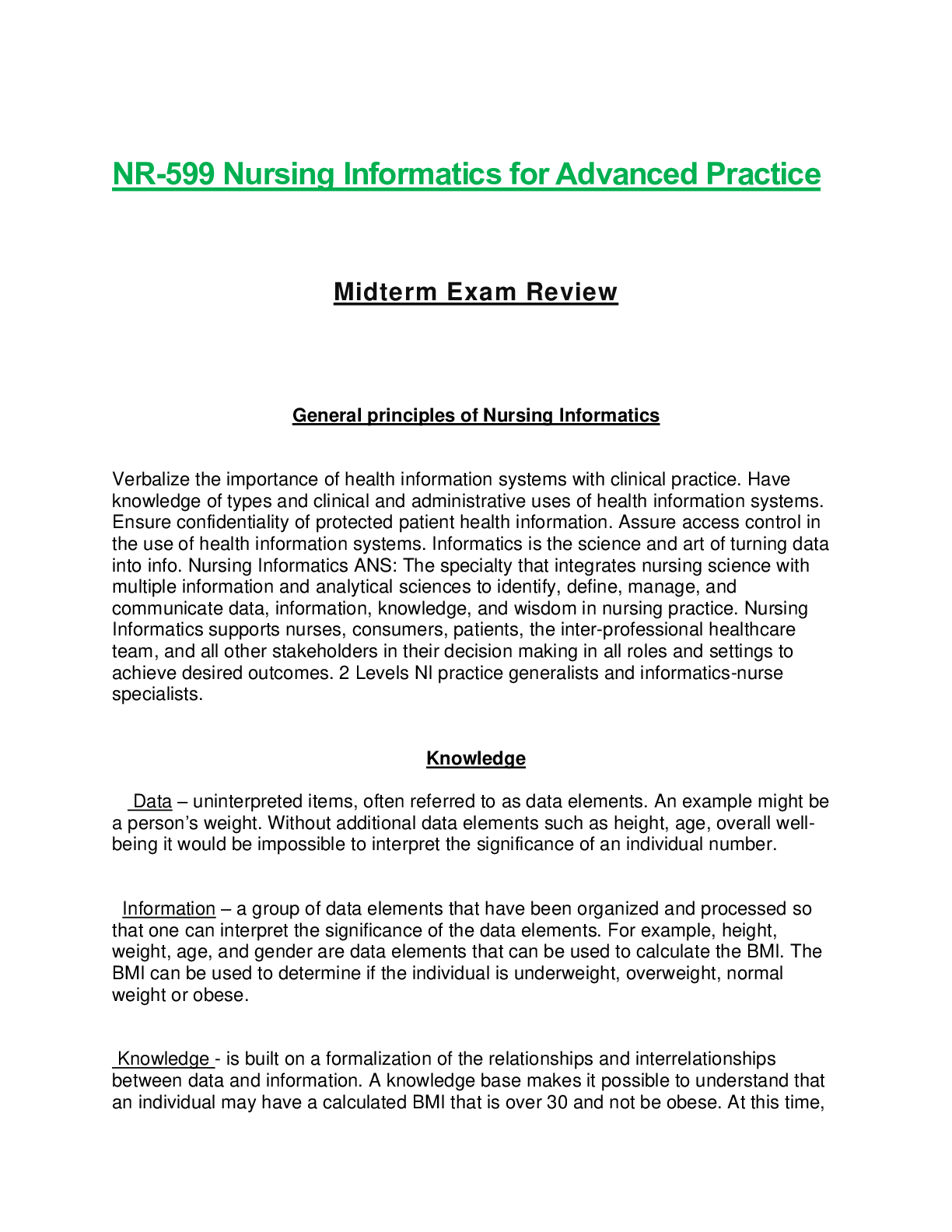
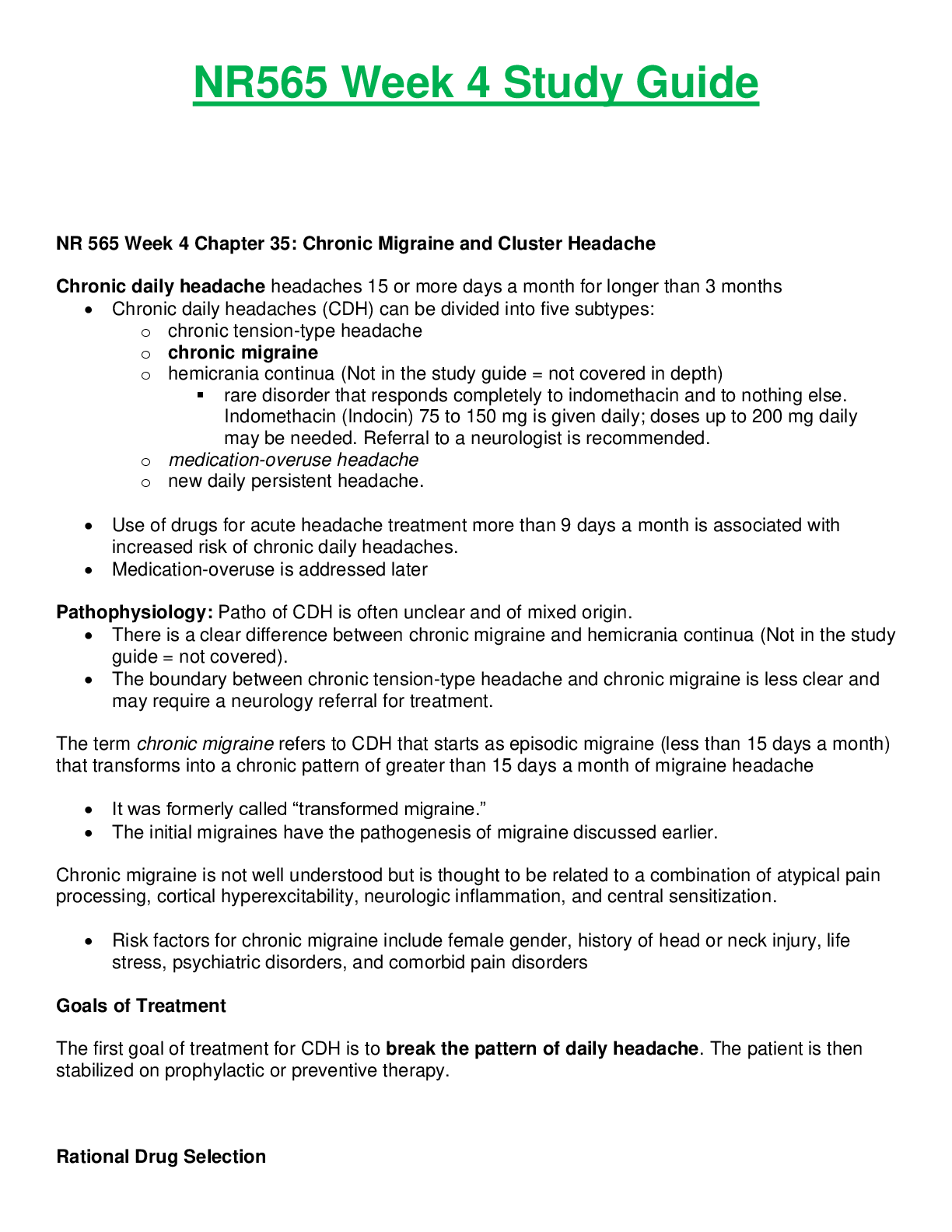
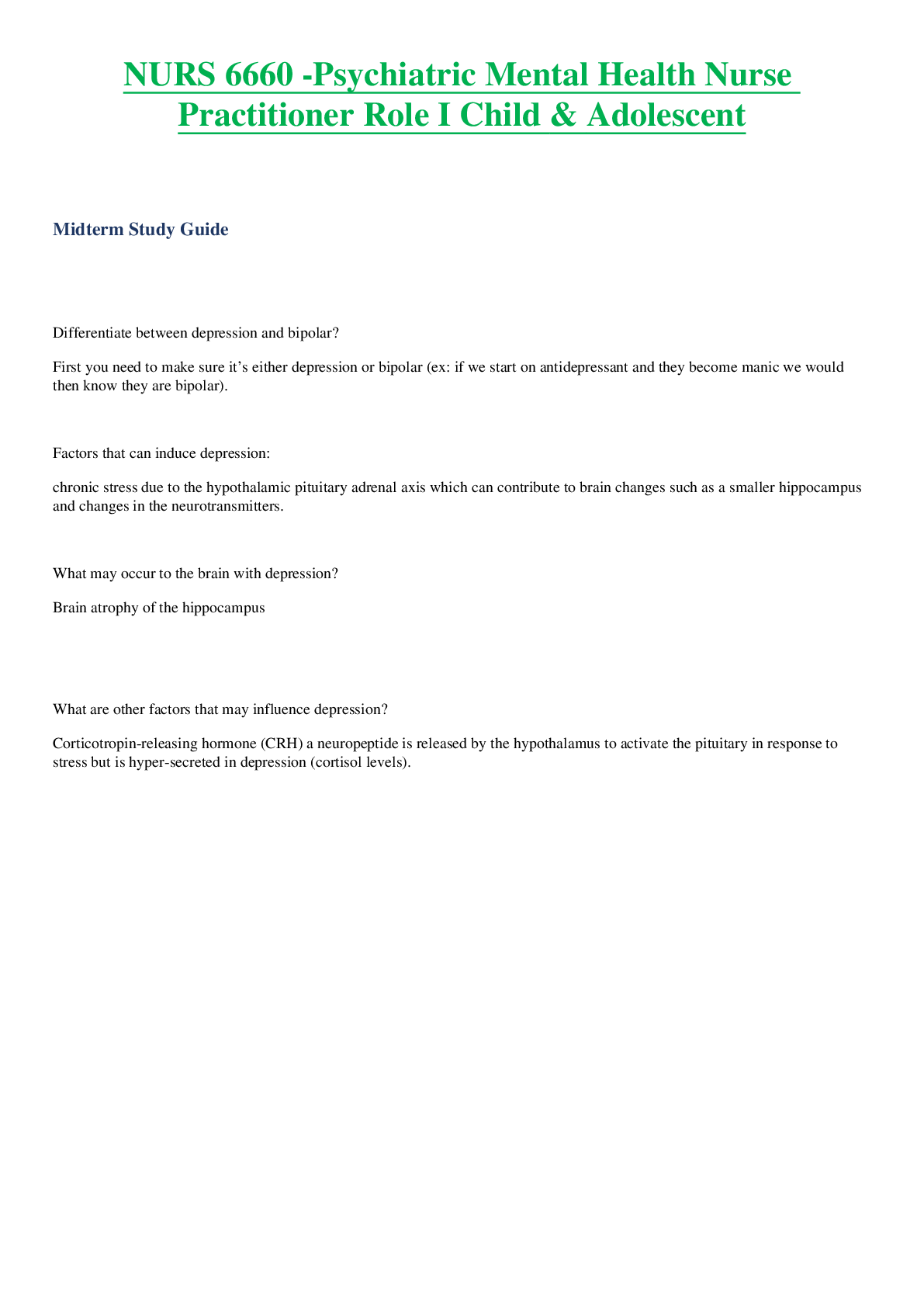

.png)

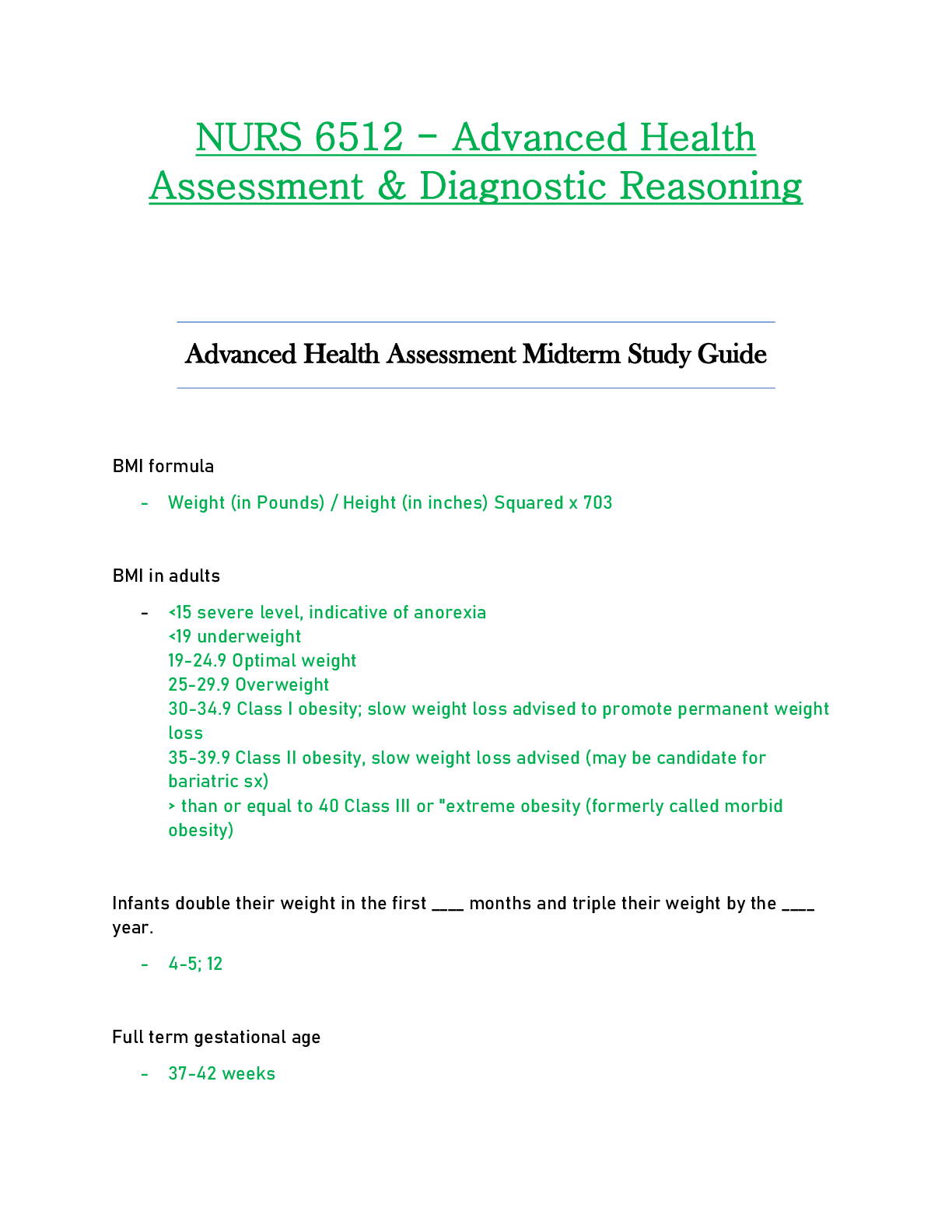

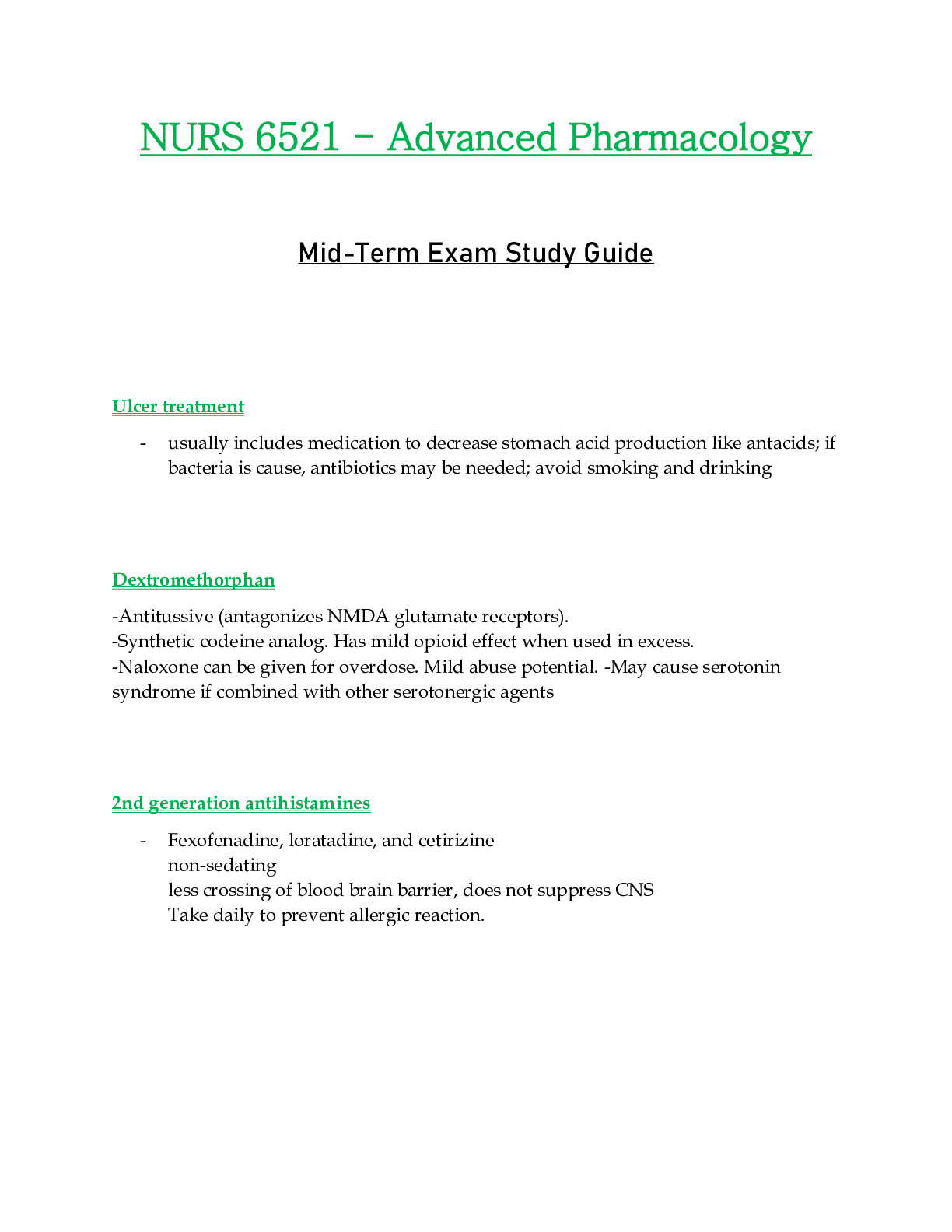
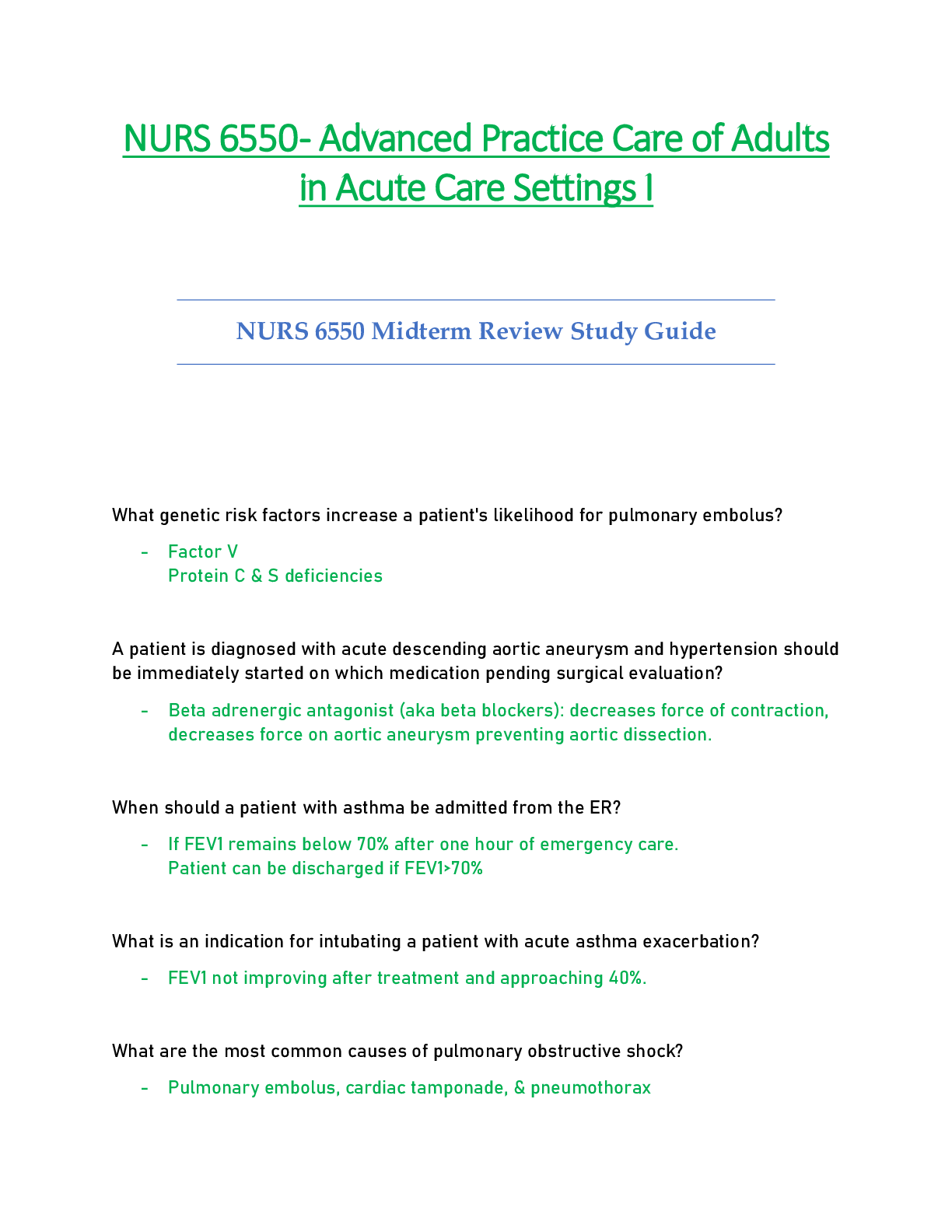
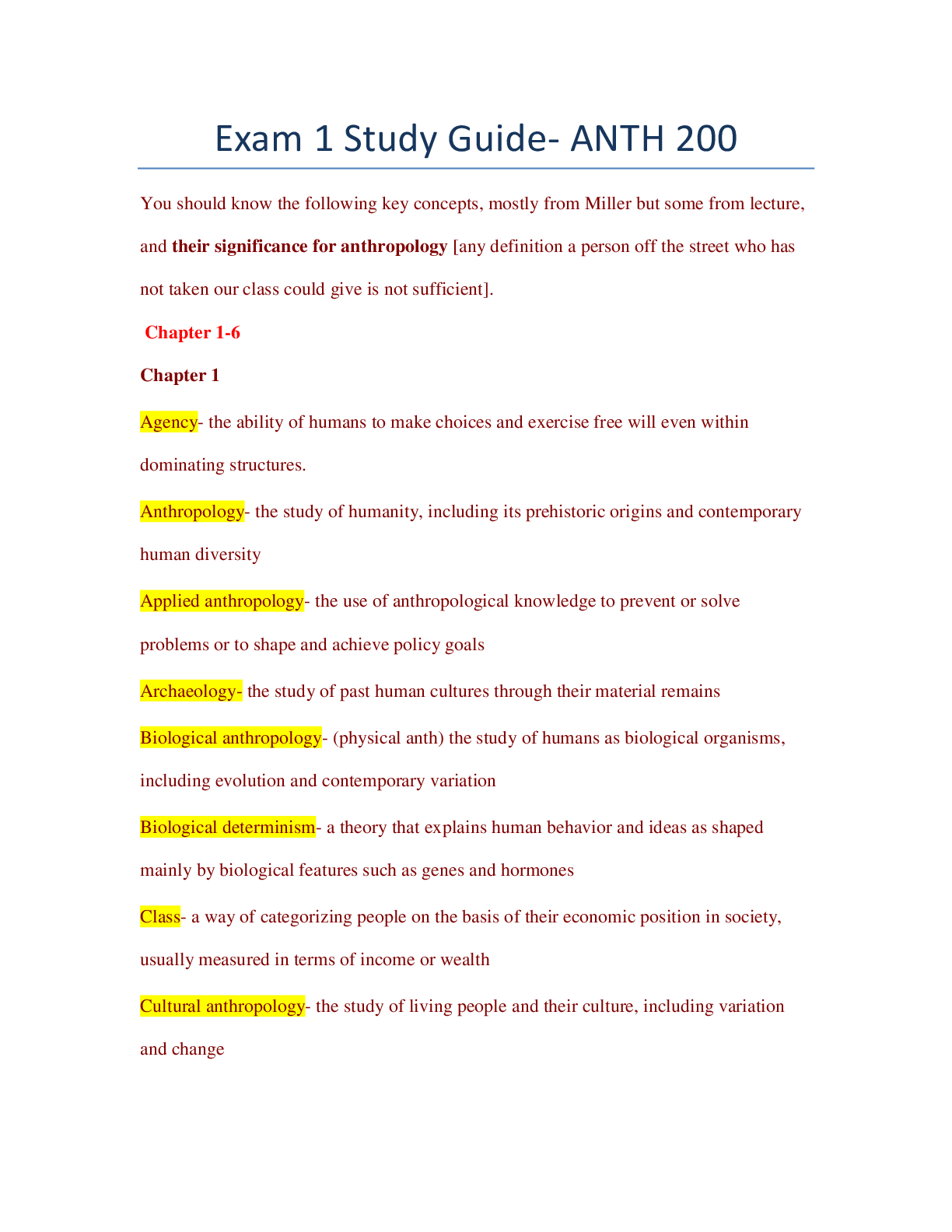
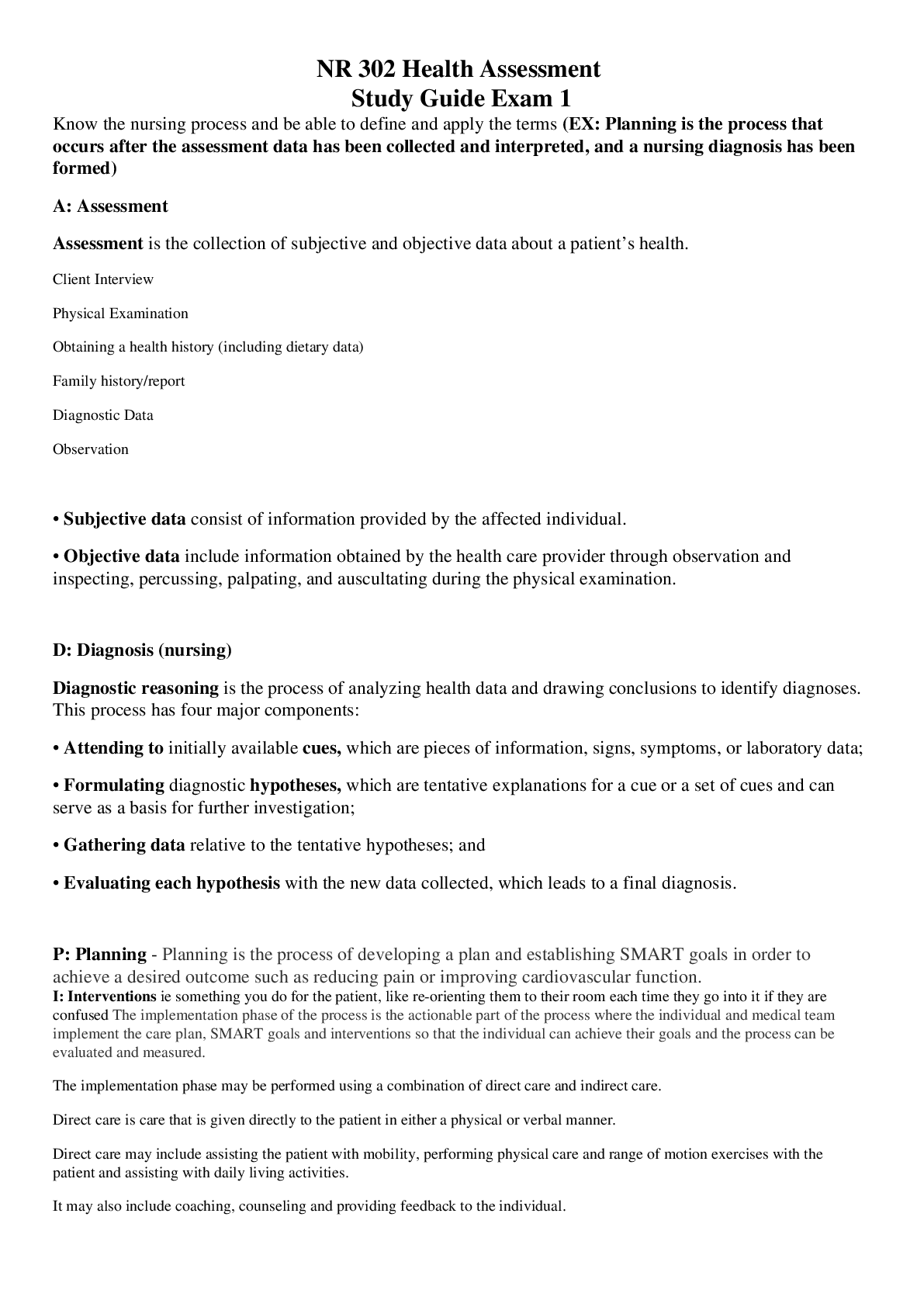
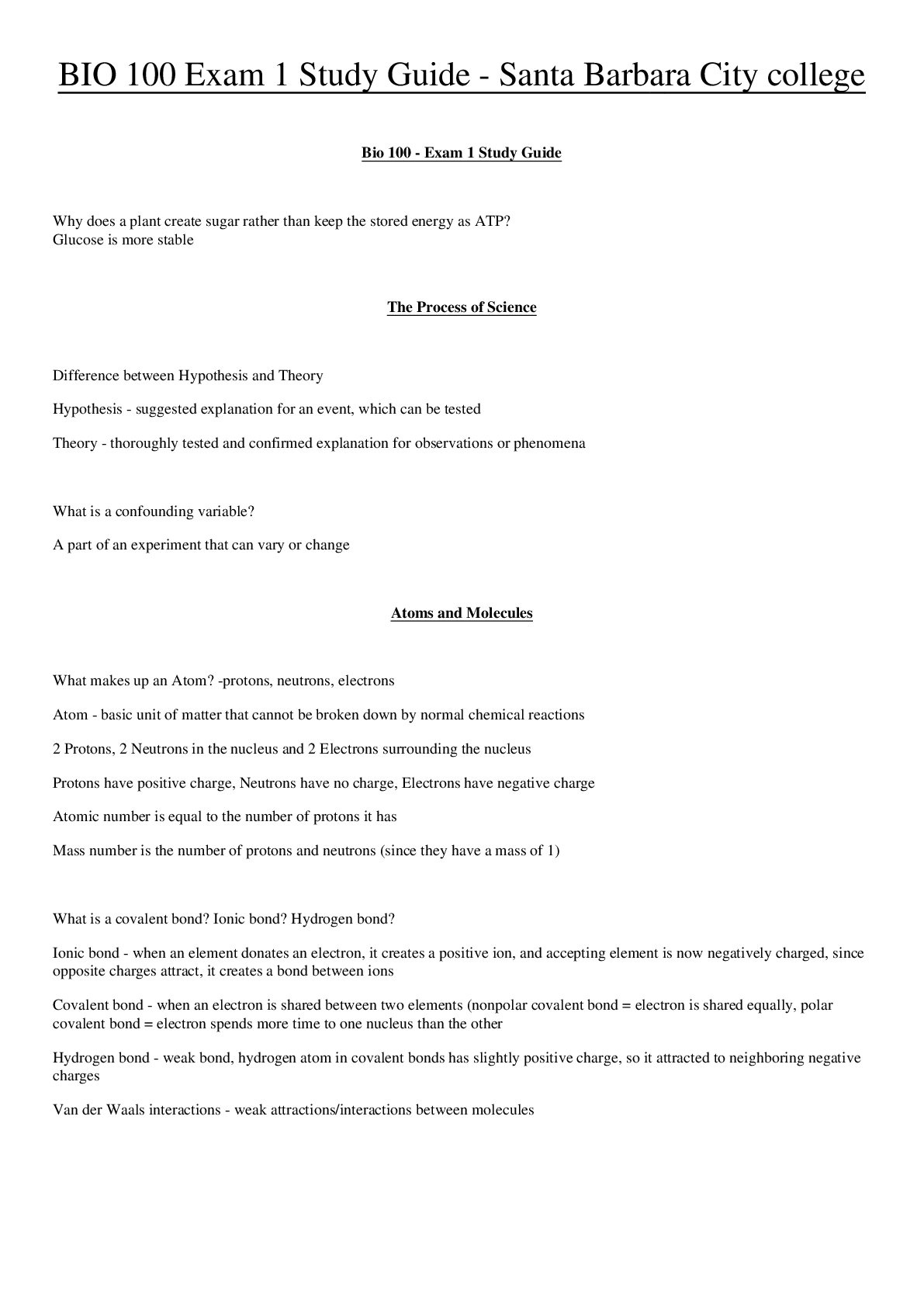


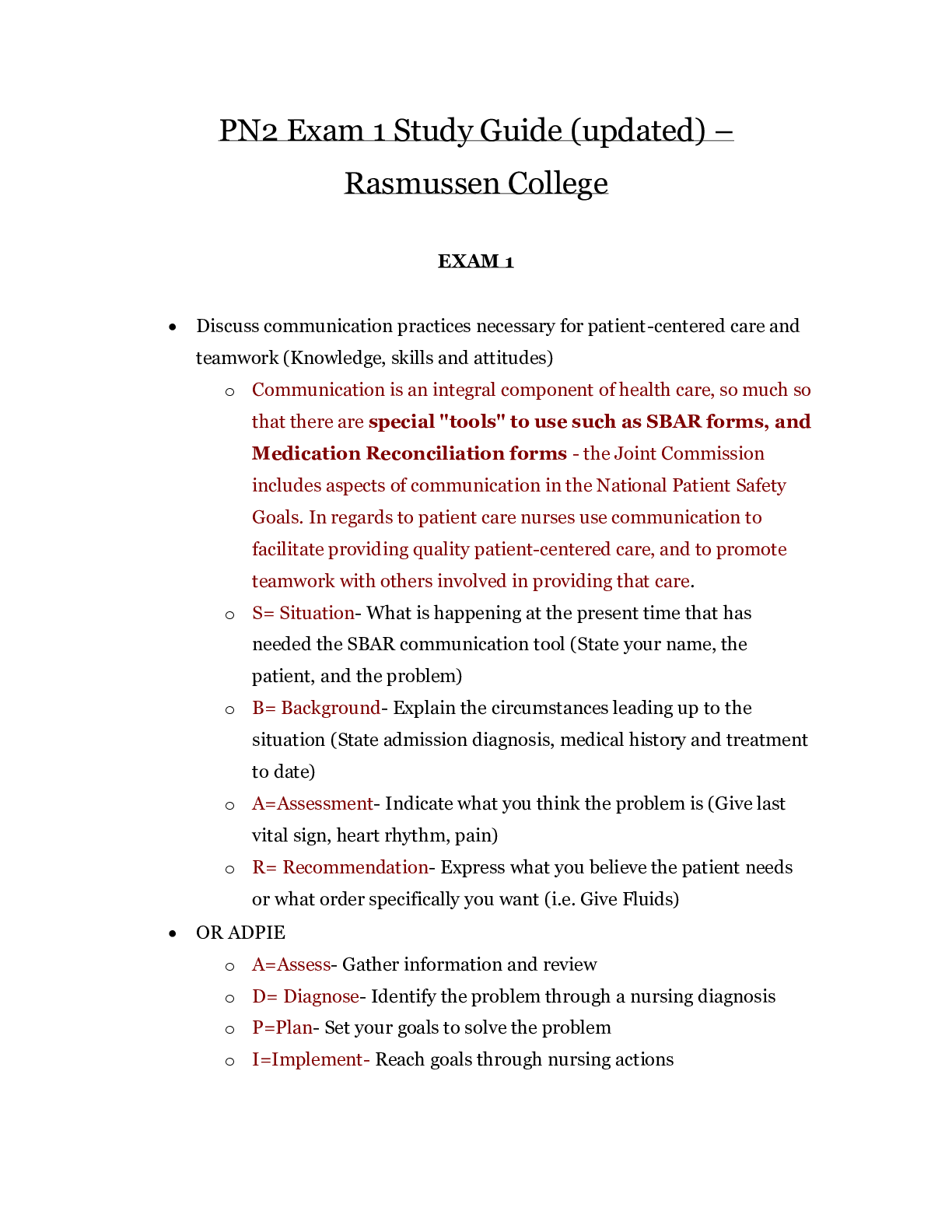

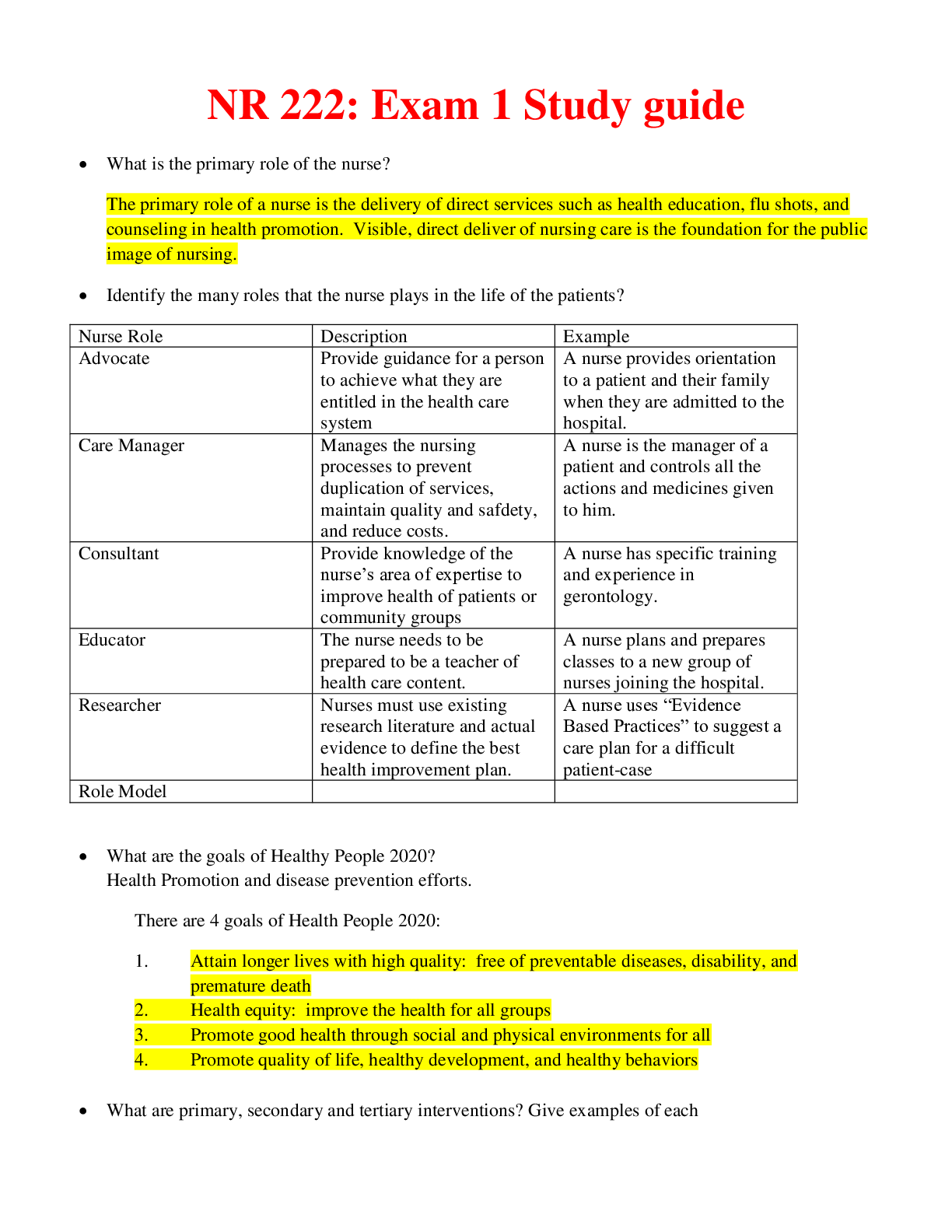
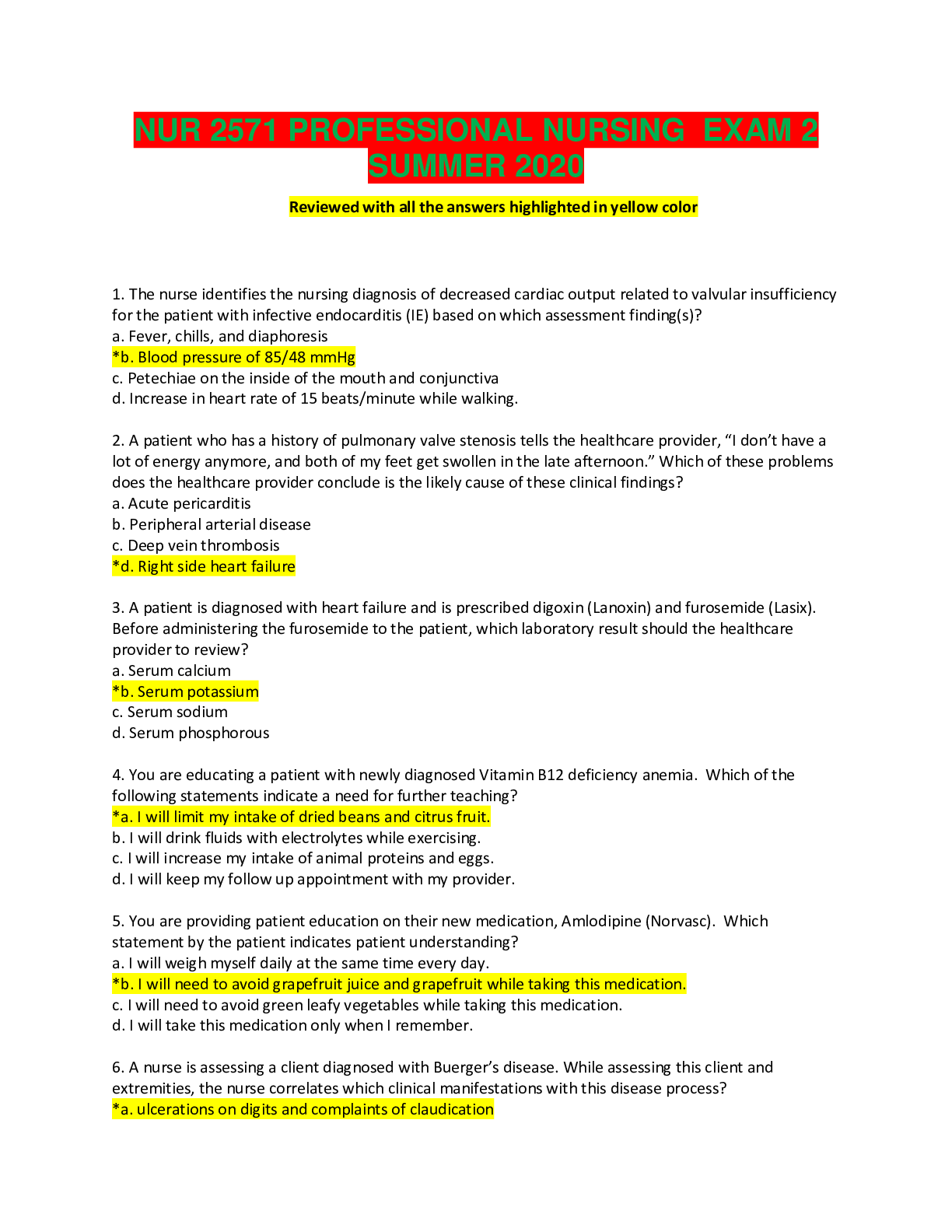

.png)
